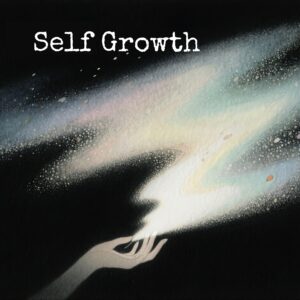Introduction
Do you feel most at ease when life is organized, predictable, and under control? If you find yourself needing routines, practical solutions, and clear communication to feel secure, your Moon in Virgo may be the reason. This placement blends emotion with thought, bringing a steady yet analytical quality to your inner world. Understanding your Virgo Moon helps you see why you often seek perfection, why service feels so natural, and how to balance your critical eye with self-compassion.
Emotional Traits of Moon in Virgo
The Moon in Virgo is influenced by Mercury’s analytical and detail-oriented energy. Emotions are filtered through thought, leading to a practical, sometimes cautious approach to feelings.
Key traits include:
Practical nurturer: You show love through acts of service and problem-solving.
Emotionally reserved: You may hesitate to express feelings directly, preferring subtle gestures.
Need for order: Routines, organization, and health practices bring you comfort.
Attentive and caring: You notice details others miss, making loved ones feel understood.
Scene example: Instead of saying “I love you” ten times a day, you quietly prepare your partner’s favorite lunch or fix something that’s been bothering them—love expressed through action.
Challenges in Relationships with Moon in Virgo
Your careful, thoughtful approach can also create challenges if taken to extremes.
Common challenges include:
Overcritical tendencies: You may judge yourself and others harshly, seeking unrealistic perfection.
Difficulty relaxing: Worry and overthinking can block emotional flow.
Reluctance to show vulnerability: You might bottle up emotions, fearing they seem “messy.”
Service over self-care: Always taking care of others while neglecting your own needs.
Scene example: A partner opens up emotionally, but instead of simply listening, you immediately suggest solutions, leaving them feeling unheard even though your intention was to help.
How to Nurture Relationships as a Moon in Virgo
Your natural devotion and attentiveness can build strong bonds when balanced with openness and compassion.
Practical ways to grow:
Practice emotional expression: Let loved ones see your heart, not just your helpfulness.
Balance critique with kindness: Use your keen eye to uplift, not diminish.
Allow imperfection: Remind yourself that love doesn’t need to be flawless.
Prioritize self-care: Give yourself the same devotion you give others.
Scene example: Instead of focusing on your partner’s forgotten chore, you notice and appreciate their effort to spend quality time with you, keeping balance in perspective.
Emotional Exercises for Moon in Virgo
Gratitude journaling: List three things daily that went well to counteract critical thinking.
Mind-body connection: Use yoga, meditation, or mindful eating to calm worry and ground emotions.
Vulnerability practice: Share one feeling with a trusted person without trying to “fix” it.
Relaxation rituals: Create a routine that prioritizes rest, reminding yourself that stillness is productive, too.
Deeper Astrological Insights
Why the Moon Acts This Way in Virgo
Virgo is ruled by Mercury, bringing analysis and precision. When the Moon—our emotional core—lands here, feelings are processed logically, with a focus on improvement and service. Comfort comes through order, health, and meaningful acts of care.
Contrast with Neighboring Signs
Moon in Leo (previous sign): Leo expresses emotions boldly and dramatically, while Virgo prefers subtlety and refinement.
Moon in Libra (next sign): Libra seeks harmony and balance in relationships, contrasting Virgo’s focus on details and practical problem-solving.
Lessons from the Opposite Sign (Pisces)
Virgo learns from Pisces the value of surrender and faith. While Virgo analyzes, Pisces teaches that not everything can be solved—some emotions need to be felt and trusted rather than managed.
Impact of Planetary Aspects
Moon conjunct Mercury: Heightens emotional intelligence and communication skills.
Moon square Neptune: May blur clarity, increasing worry or unrealistic expectations.
Moon trine Uranus: Brings innovation and adaptability, making you open to change while staying grounded.
Summary
Moon in Virgo creates a thoughtful, service-oriented emotional world where care is expressed through actions and attention to detail. While overthinking and perfectionism can create challenges, your loyalty, devotion, and practicality make you a deeply supportive partner. By balancing analysis with compassion and allowing vulnerability, you transform your careful heart into a source of quiet strength.
Your Virgo Moon is one piece of your emotional map. A full birth chart reading reveals how this placement works alongside others to shape your relationships and inner growth.


